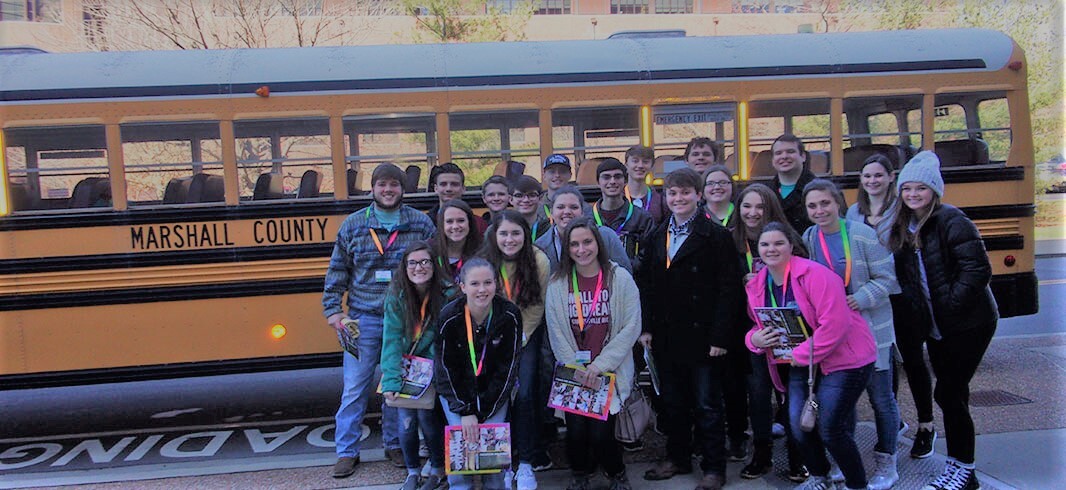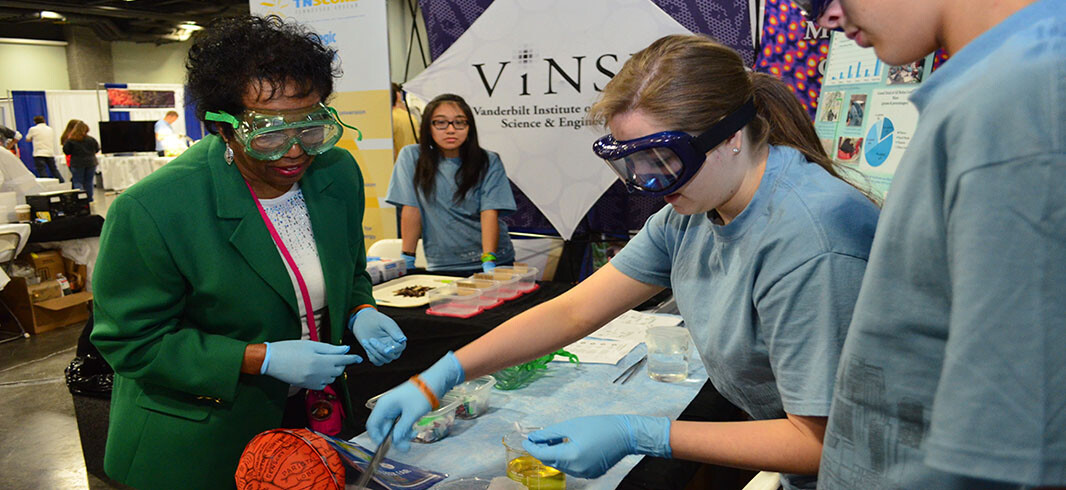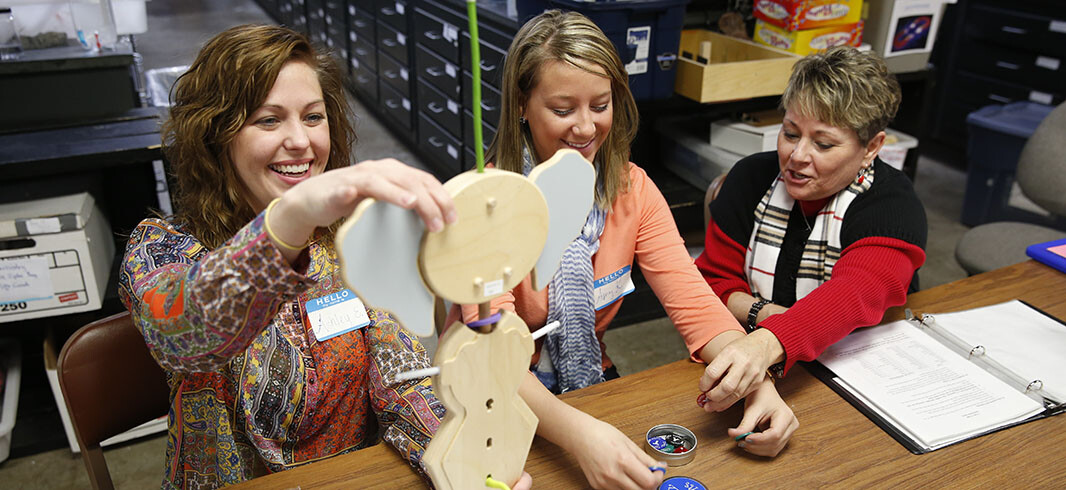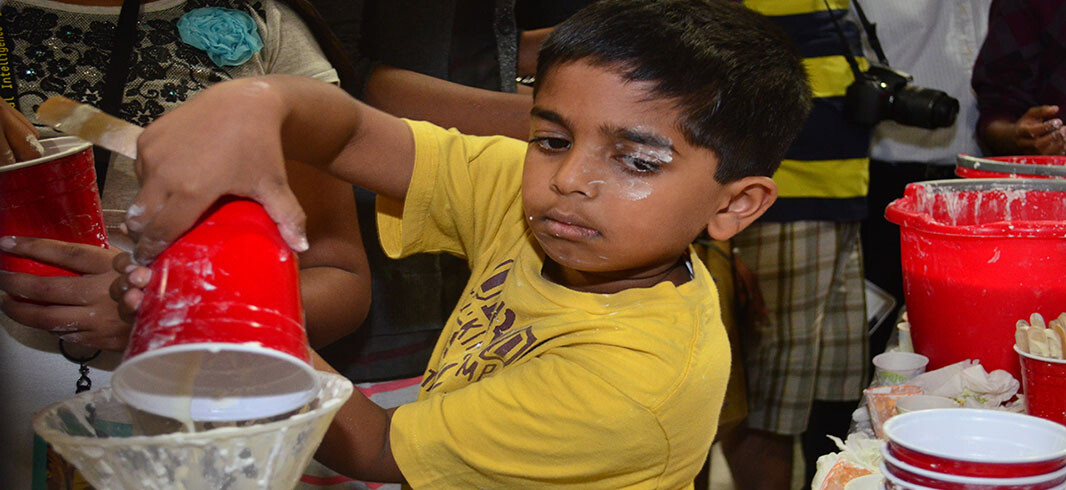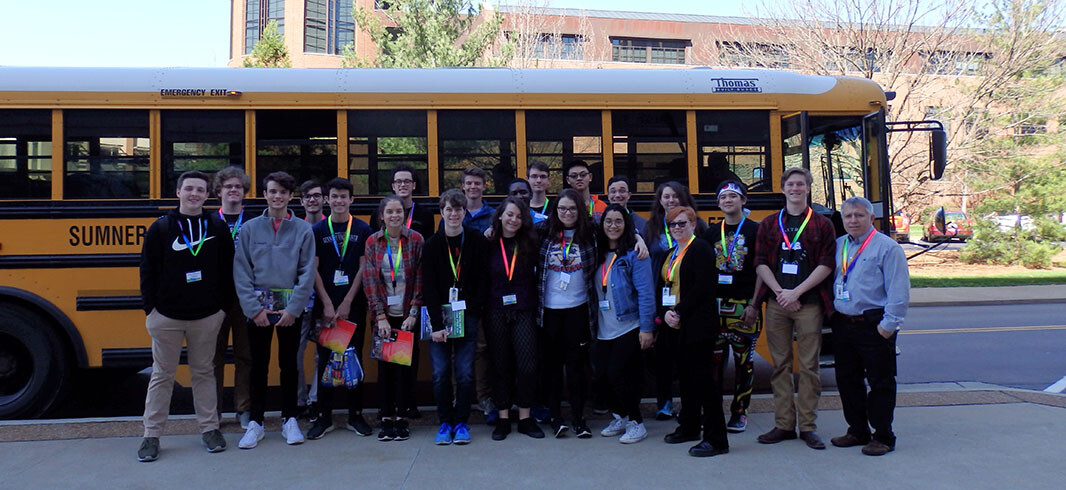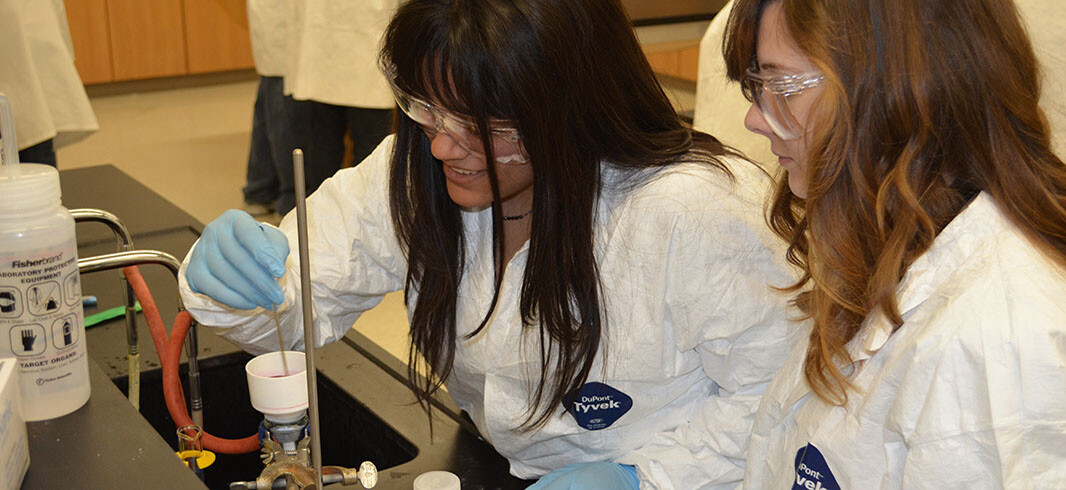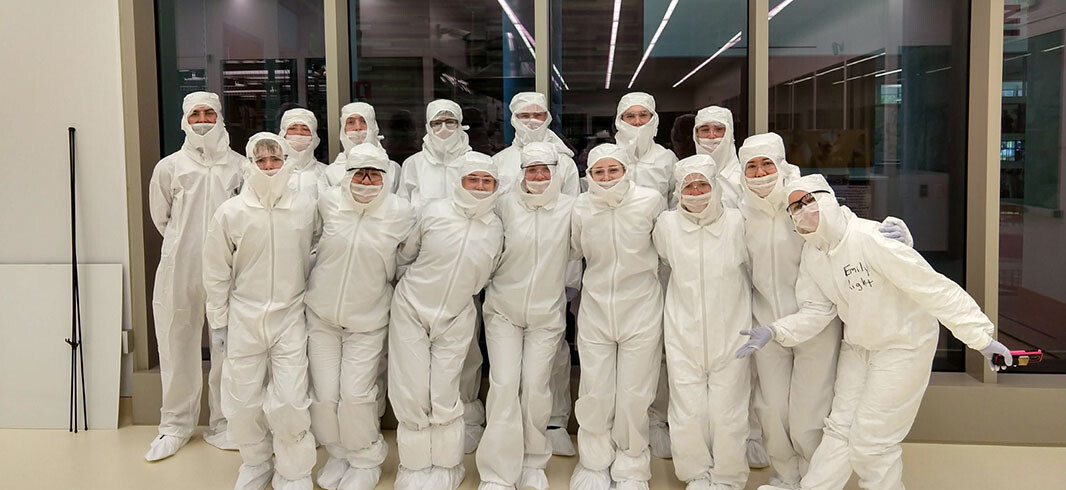K-12 Outreach
The Vanderbilt Institute for Nanoscale Science and Engineering (VINSE) has dedicated K-12 STEM-education. Three programs run by VINSE are the VINSE High School Field Trip Program, Vanderbilt Summer Academy in Nanoscience and Nanotechnology and Vanderbilt Students Volunteer for Science/ VINSE Rural Teacher Training program
High School Field Trip Program
Every year VINSE invites groups of high school students, group size 20 or smaller, to visit our facilities, perform an experiment, utilize our electron microscopes, and learn about nanotechnology during a day visit. Select from 4 avaialble lessons.
Blackberry Solar Cell. How can you squeeze electricity from a blackberry? More than 3,000 middle TN high school students can answer this question from personal experience. They have made solar cells out of blackberry juice and measured the electrical power they produced. The students also examine the material that they used to make the solar cells with one of VINSE’s scanning electron microscopes. These instruments can magnify objects by as much as 500,000 times, enough to allow the students to see nanoscale features 50,000 times smaller than the width of a human hair and learn how these tiny features can affect how much sunlight a solar cell can capture. Maximum students: 20
Forensics/Analytical Laboratory. How are the optical properties of materials used in answering forensic and fundamental scientific questions? Using a form of non-destructive testing, spectroscopy, students can discover the unique properties of naturally occurring and synthetic materials, in part through direct measurement of the dramatic and varied optical properties. The awesome and dramatic color change of materials will be used as an introduction to the understanding of natural processes in everyday objects. By the conclusion of the program, students will use the most advanced analytical instrumentation available to modern science to gain a deeper understanding of the challenges and opportunities present in today’s society. Maximum students: 16
Cleanroom Solar Cell. How does a solar cell work and how can you make one? High school students go inside the VINSE cleanroom, home of the cleanest air in middle Tennessee, and find out with hands-on activities! The students create a full silicon solar cell, measure the electricity generated by shining light on the solar cell, and use light-based stenciling to pattern metal electrodes like those used on solar cells. Students also determine how to change the amount of electricity a solar cell collects, use that electricity to power a lightbulb, and explore how their results could make better solar cells. Maximum students: 16
Cleanroom Microfluidics. How can you mimic organ behavior while leaving your organs in your body or detect COVID in minutes? High school students go inside the VINSE cleanroom, home of the cleanest air in middle Tennessee, and find out with hands-on activities! The students stencil with light to pattern a mold for hair-thin pipes, put together flexible pipes and wells to make microfluidic devices, and examine how liquid in the devices flows using the same tools and techniques as industry and academic researchers. Students also design, make, and test their own custom paper microfluidic devices and learn how differences in their designs alter the behavior of the fluid. Maximum students: 16
Students from 68 schools, representing 26 counties, have participated in the VINSE field trip program.
Summer Science Academy
VINSE is actively involved with the Vanderbilt Summer Academy (VSA) and offers a course in Nanoscience and Engineering in session 2 for rising 9th and 10th graders. This is a two-week residential program that exposes students to the exciting world of nanoengineering. In this class, students get an introduction into key nanoparticles and their properties while, stretching creative problem solving skills to their limits. Students can expect advanced lectures, labs, and extensive study with faculty, graduate students, and postdocs and will get to spend significant time in one of Vanderbilt’s newest, biggest, and cleanest cleanrooms. These experiences will challenge students to see the world the way a nanoscientist does—how manipulating the smallest of particles might address some of the world’s biggest problems.
VINSE offers scholarships for at need Tennessee students that fit into at least 2 of the following 4 categories: minority, female, first generation college, or lives in rural community. To learn more or apply for the VINSE scholarship, click here.
VSVS & VINSE Rural Teacher Hands-on Science
VINSE in partnership with Vanderbilt Student Volunteers for Science (VSVS) VINSE offers a STEM outreach program to rural counties for grades 6th-8th. The goal of this program is to get science out of the textbook and give Tennessee teachers the tools to help their students develop a genuine interest and stronger skills in science and math. The VSVS program has developed middle-school lessons that fit in Tennessee Curriculum Standards, these lessons have been used in Davidson County since 1994. Each hands-on science lesson includes background materials, a prepared presentation for teacher/students, all materials for a class of 30 to perform a hands-on activity and student worksheets that can be copied and modified. VINSE's mission is to take these materials to rural middle Tennessee Schools. Participating teachers in each grade will be able to select up to 3 lessons for the fall curriculum and up to 3 lessons for the spring. Kits are returned to Vanderbilt at the end of each semester to be refurbished. Teachers are required to attend a one-day training session at Vanderbilt in the fall and in the spring to train on each of the lessons selected for their classroom.
VINSE/VSVS Rural Kits:
6th grade: Chemical Energy Conversions; Conduction, Convection, and Radiation; Deep Ocean Currents; Electrical Circuits; Electrical Conductivity; Potential Energy; Saltwater Density; Wall Roller Coasters; Wind Energy
7th grade: Chemistry in a Ziplock Bag; Crazy Traits; Diffusion; Elements, Compounds and Mixtures; Evidence of Chemical Reactions; Inheritance and Blood Typing; Investigating Ionic, Covalent, and Metallic Bonding; Osmosis; Types of Chemical Reactions
8th grade: Electromagnetism; Igneous Rocks; Minerals; Newton's 2nd Law, Rubber Bands; Newton's 2nd Law, Knex Cars; Nanotechnology and Magnetism; Property of Waves; Sound and Resonance; Stratigraphy; Survivor
Since 2012, VINSE has partnered with teachers from 7 middle TN counties (Bedford, Giles, Dickson, Lawrence, Macon, Robertson and Rutherford).
For more information about VINSE outreach contact: Sarah Ross.

